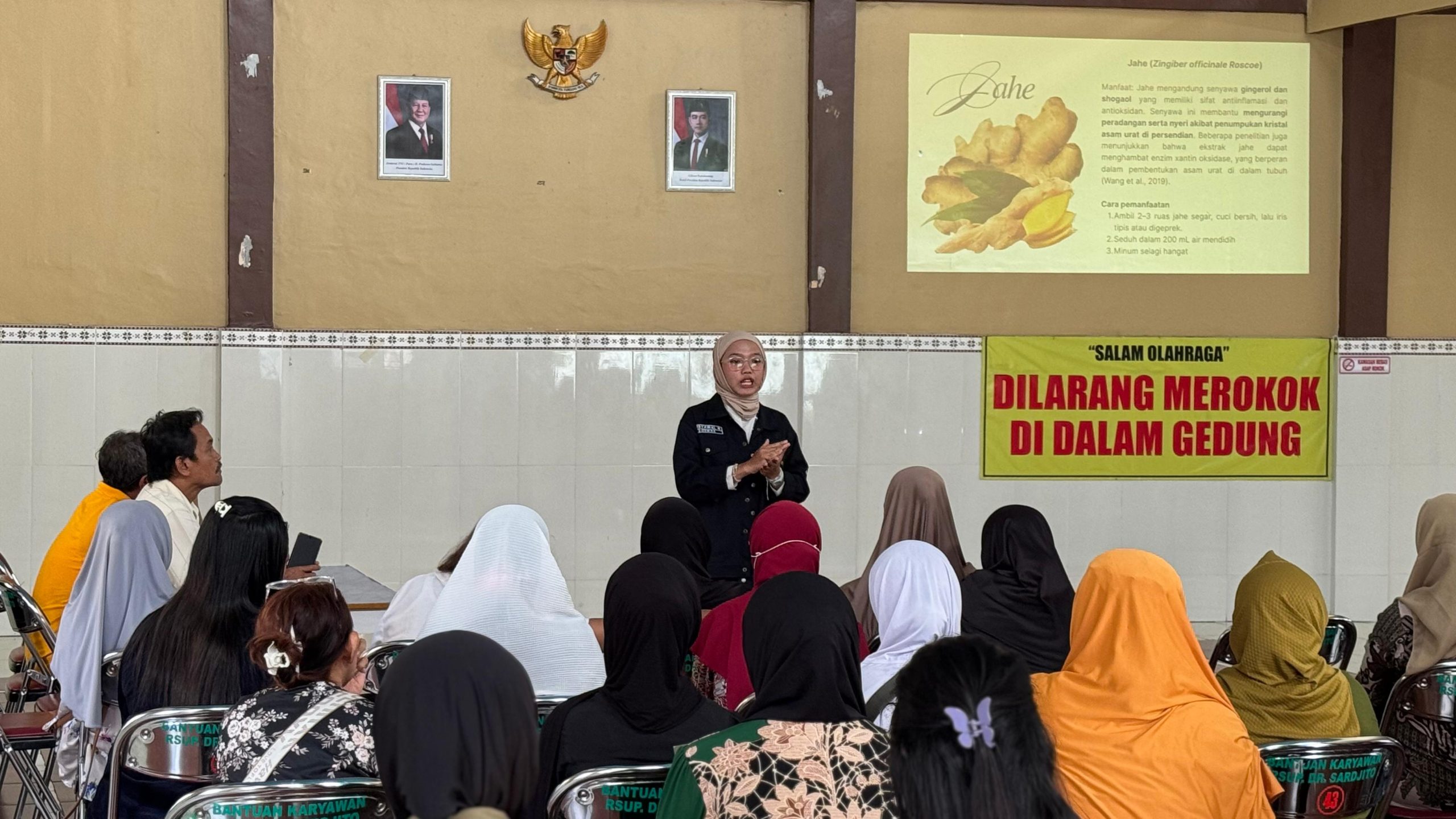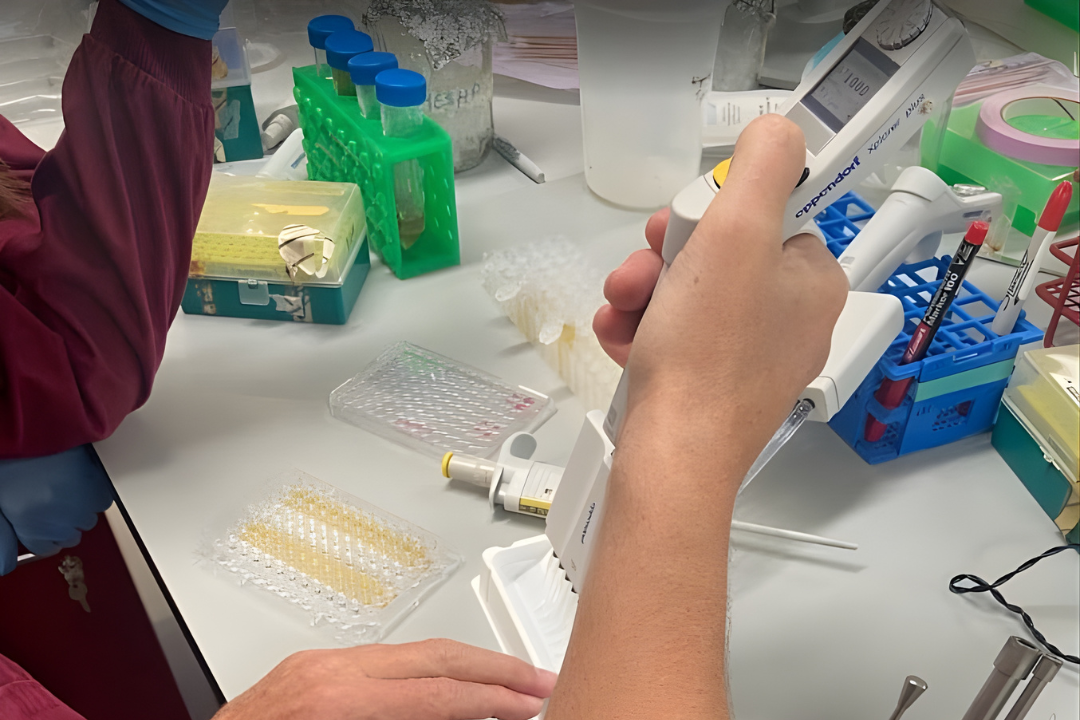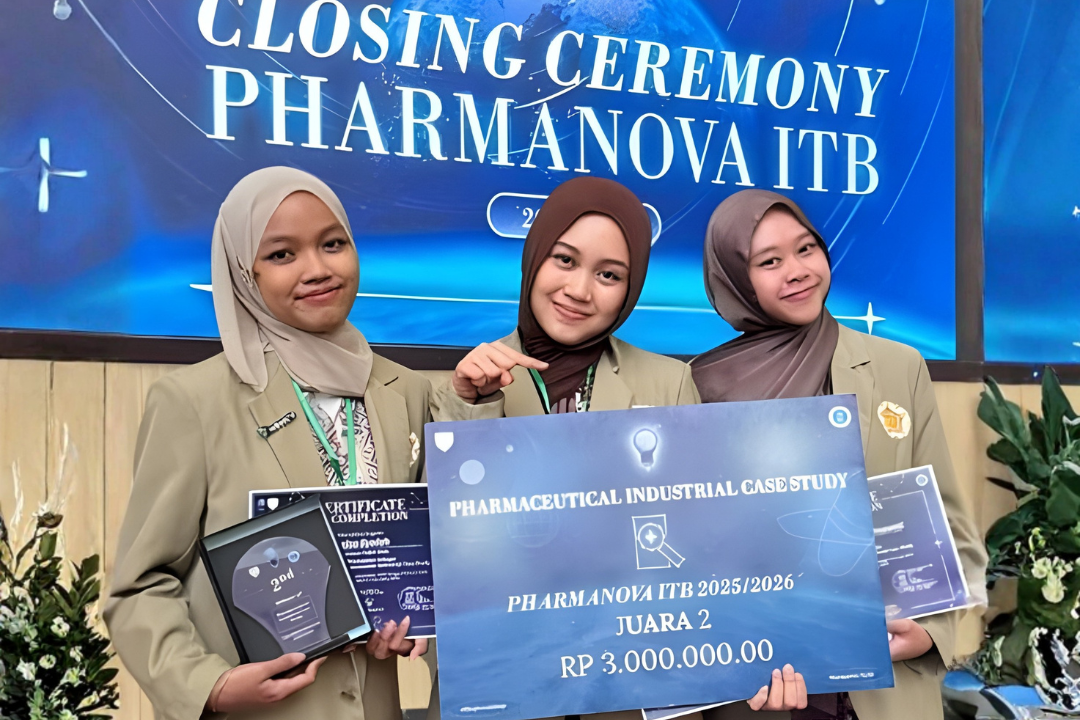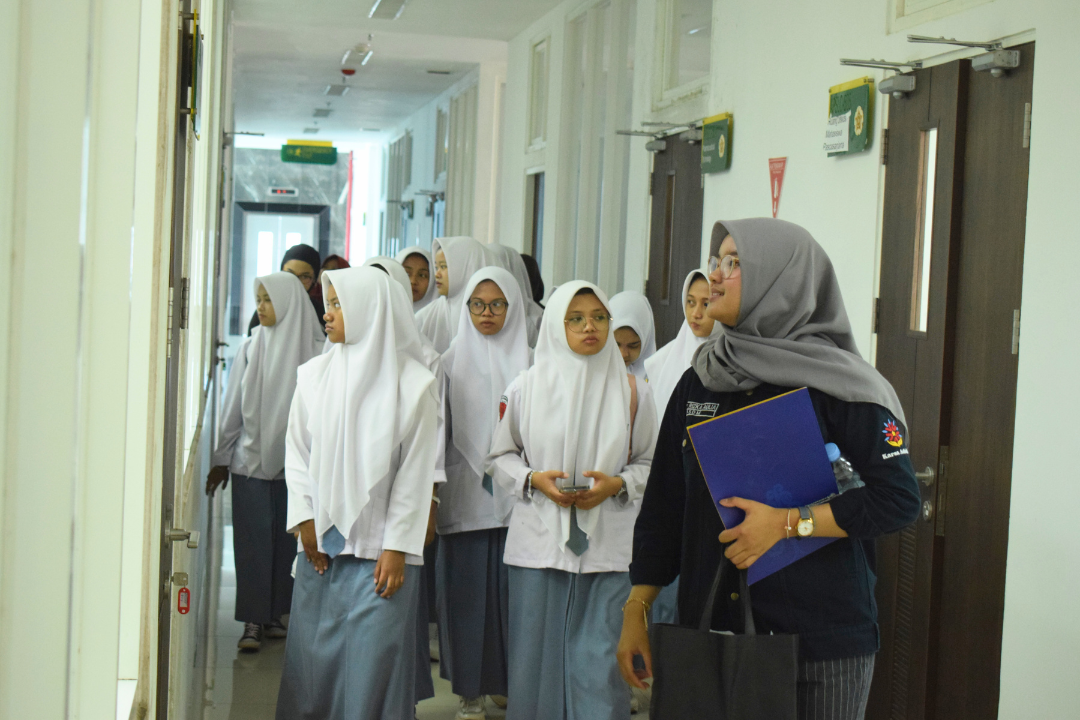Yogyakarta, August 31, 2025 – In celebration of the 79th anniversary of the Faculty of Pharmacy, Universitas Gadjah Mada (UGM), together with the Social Affairs Department of the Student Executive Board (BEM KM) of the UGM Faculty of Pharmacy, successfully held a community program entitled “TOGA SURGAKU: Healthy Independence from Your Own Backyard.”
The event, held on Sunday, August 31, 2025, at the Sendowo Village Hall, aimed to educate and empower residents, especially PKK cadres, on the importance of utilizing Family Medicinal Plants (TOGA) as a first step toward health independence from the immediate environment.
The event was enthusiastically welcomed by the residents of Padukuhan Sendowo. It began at 8:00 AM with registration and the distribution of informative booklets and light refreshments to participants. A warm welcome from the representative of the Faculty of Pharmacy UGM, Dr. Djoko Santosa, S.Si., M.Si., and the Head of Padukuhan Sendowo officially opened the series of events.
The highlight of the event was a comprehensive presentation by students from the Social Community Department of BEM KM Farmasi UGM. Participants were given practical knowledge on how to plant, care for, and process various types of herbal plants that are easily found in home gardens to maintain health and treat minor ailments. The interactive question and answer session showed the high interest and curiosity of the residents in the use of TOGA. Many residents actively discussed and asked questions about the benefits of plants for everyday health. The event then continued with the “Tebus Murah” program, which allowed participants to purchase necessities at low prices.
This program contributes to SDG 3, Good Health and Well-being, by empowering the community to achieve independence in primary health care through the use of medicinal plants. Furthermore, the socialization activities and provision of educational materials are a form of implementation of SDG 4, Quality Education, which provides access to practical and relevant non-formal learning for residents. Moreover, efforts to encourage the use of yard resources to reduce household expenses and the “Tebus Murah” program are in line with SDG 1, No Poverty, as they have the potential to directly ease the economic burden on the community.





